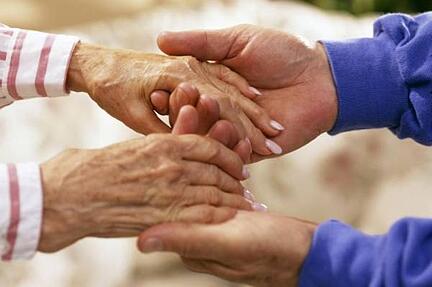
Huntington's disease is a brain disorder, hereditary, and one that is going to require long-term care at some stage of the person's life. HD generally begins to affect those who have the disorder between the ages of 30 years and 50 years.
For caregivers, knowing the different challenges and methods of caring for those with Huntington's disease can be a blessing. Your decision whether to use assisted living in Connecticut is a personal choice, and one that can only come about after much thought. Not all assisted living services are alike and it differs from retirement living. Choose what is best for your individual situation.
Knowing What to Expect
Symptoms of Huntington's that can be expected through the progression of the disease are:
- Involuntary movements
- Unsteady gait
- Poor attention and/or repetitive thinking
- Impaired judgment
- Impulsiveness
- Mood swings, personality changes, and/or depression
- Slurred speech
- Trouble swallowing
- Clumsiness
- Trouble with voluntary movements
Doctors Associated with the Care Team
While caring for you or your loved one, there are many doctors who may be utilized. These include a neurologist, psychiatrist, social worker, physical therapist, occupational therapist, mental health therapist, nurse, nutritionist, and speech pathologist.
Changes in Living Conditions for Care of HD
There may be several changes to the lifestyle of a HD patient to help improve their movement disorder. These include making safety modifications, using mobility aids, changing their diet and nutrition, using communication aids, changing sleeping arrangements, and changing seating.
Diet and HD
There are many symptoms that can take a toll on the necessary nutrition that the Huntington's patient may be lacking. These include distractibility, poor dental hygiene, trouble chewing and swallowing, difficulty using utensils, sporadic involuntary movements, and the inability to be aware of hunger. Using a nutritionist and a specialized diet can help put nutrients back into the patient, increasing health.
There are more cognitive and nutritional difficulties as HD goes into late-stage. There may be a need for a feeding tube and specialized care that home caregivers cannot give. Long-term therapy and treatment should be done by finding the best team of assisted living in IN professionals that you or your loved one deserve.
Key Takeaways:
- Don't let the symptoms take you by surprise
- Change or modify some of the lifestyle items so they are safer and less prone to injury
- Find a knowledgeable support team
- Know you or your loved ones healthcare team and what each of them do
Need Help?
If you're interested in learning more about assisted living, contact us today.







